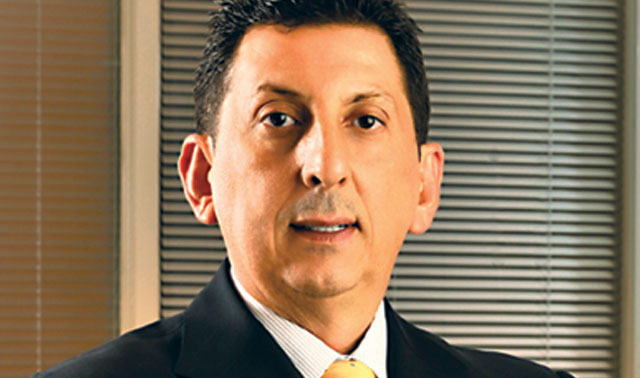 So, Ahmad Farroukh, MTN South Africa’s CEO of the past 11 months, is leaving at the end of July.
So, Ahmad Farroukh, MTN South Africa’s CEO of the past 11 months, is leaving at the end of July.
His tenure has been rocky, to say the least. He was brought in to turn around the troubled operator, but instead is leaving turmoil in his wake as a long-running and particularly acrimonious labour dispute involving the Communication Workers Union (CWU) drags on.
Farroukh’s departure, announced this week — he leaves at the end of July — comes just weeks before the group announces its interim results for the six months to 30 June 2015.
The timing of his exit must raise questions about the performance of MTN’s South African business. Has the operator lost more ground to rivals Vodacom and Cell C? We’ll know soon enough — it publishes results on 5 August.
The official line is that Farroukh is leaving for “personal and family reasons”. Given that his family lives abroad, perhaps this needs to be taken, at least in part, at face value.
He was brought in to put the South African operation on a firmer footing. The business has come under intense pressure as competition intensifies in a maturing market.
Farroukh certainly has the pedigree, having reportedly done a good job in West Africa, where he headed up MTN’s most profitable operation, Nigeria, as well as in Ghana, where MTN is dominant. He came to MTN through Investcom, which the mobile group bought in 2006 for US$5,5bn.
Farroukh replaced Zunaid Bulbulia at the head of MTN South Africa. Bulbulia, one of MTN’s founding members, was moved out of the local operation last year and into a leadership role in the group head office. Bulbulia had only been South African CEO for a year before he was moved.
The constant chopping and changing of CEOs must be a worry for MTN investors. A year is not long enough for a new CEO to see through the implementation of a strategy.
The strike aside, MTN is operating in a market that has changed dramatically in recent years. It was late to cut prices in response to competitors, and paid for this mistake in market share losses. And it was forced to retrench thousands of employees as part of a sweeping cost-cutting exercise as pressures on profit margins mounted.
The South African business has appeared, however, to have turned the corner in the recent past. Has the CWU’s industrial action, which has reportedly impacted on some of MTN’s channels, put paid to the tentative turnaround?

MTN’s most recent business update was published on 27 May, providing insight into the first four months of the year. It said the South African business had been “impacted by challenges experienced in the prepaid distribution channel”. Net subscriber additions had shown signs of accelerating in April. And voice minutes had surged by 137% year on year following reductions in tariffs over the past 18 months. Service revenues were up by 3,3%, though “challenges” with cellphone distribution — with handset sales down by 21% year on year – hit revenue growth. Still, the numbers don’t exactly paint a picture of despair.
Of course, the impact of the CWU strike, which began on 20 May, is not reflected in these numbers.
Farroukh’s critics say he has tried to model the South African business on Nigeria, a market made up almost entirely of prepaid users. South Africa has different dynamics and what works in West Africa might not work well here.
He has also been criticised for a headstrong, even abrasive approach — it’s his way or the highway, insiders say. That won’t have played well with the striking workers.
Who will take over at MTN South Africa? Analysts believe Farroukh’s successor will be from within the group. One name being mentioned is Philisiwe Sibiya, the previous South African financial director, who was promoted in April to head up MTN in Cameroon. That she moved so recently to that role, though, could count against the chances of her getting the job.
Whoever fills the hot seat, shareholders will be hoping the new CEO can settle in for longer than the recent incumbents. If not, the top job at MTN South Africa risks becoming seen as something of a poisoned chalice.
- Duncan McLeod is TechCentral’s editor. Find him on Twitter
- This column is also published in the Sunday Times




